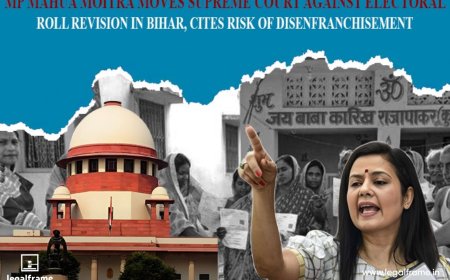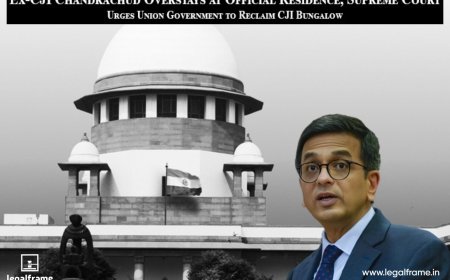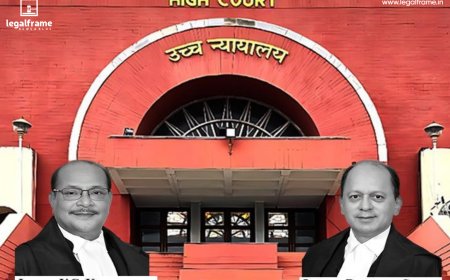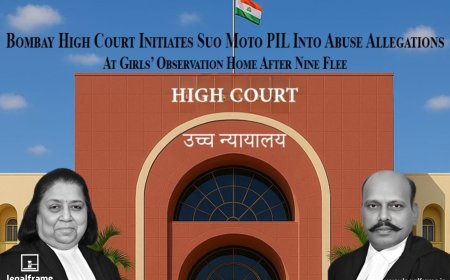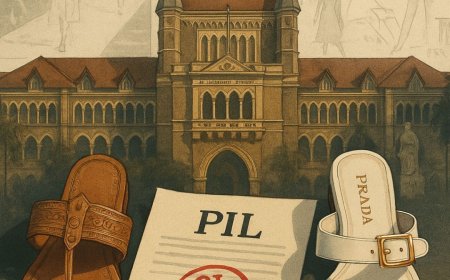PIL in Bombay High Court Accuses Prada of Copying GI-Protected Kolhapuri Chappal Design
Prada is being sued in India for using the GI-protected Kolhapuri chappal design in its luxury line without crediting or compensating local artisans.

Mumbai, July 4
A Public Interest Litigation has been filed in the Bombay High Court against Italian luxury fashion house Prada, alleging unauthorized use of the traditional Kolhapuri chappal design—an indigenous Indian craft protected under the country’s Geographical Indication (GI) law.
The petition, filed on July 2 by Advocate Ganesh S. Hingmire, asserts that Prada’s recent Spring/Summer 2026 menswear collection, presented at Milan Fashion Week on June 22, included leather sandals that closely resembled Kolhapuri chappals. Branded by Prada as "toe-ring sandals" and reportedly priced at approximately ₹1.2 lakh (about $1,440) per pair, the footwear drew immediate attention for its resemblance to the handcrafted leather slippers native to Maharashtra and Karnataka.
Kolhapuri chappals, which received GI recognition in 2019, are known for their intricate craftsmanship and cultural heritage. GI status legally protects products that originate from a specific region and possess qualities or a reputation attributable to that origin. The traditional sandals are handmade by artisans using centuries-old techniques passed down through generations.
According to the PIL, Prada failed to provide credit, compensation, or acknowledgment to the artisans or regional communities responsible for the original design. The petition contends that Prada’s use of the design amounts to misappropriation of a GI-protected craft and sets a troubling precedent for the unchecked appropriation of traditional cultural expressions by global fashion brands.
In its initial response following online criticism, Prada reportedly acknowledged that the sandals were "inspired by traditional Indian handcrafted footwear," though it stopped short of specifying Kolhapuri chappals or addressing the legal implications.
The PIL seeks four key remedies from the court:
- A public apology from Prada for alleged cultural misappropriation,
- Financial restitution to the affected artisan communities,
- A judicial order halting further production and sales of the sandals in question, and
- The establishment of a formal collaboration between Prada and Indian artisan groups, including initiatives on co-branding, design training, and revenue sharing.
Legal experts suggest that the case could set an important precedent on how global luxury brands interact with traditional knowledge systems and indigenous intellectual property rights. The petitioners argue that safeguarding GI-protected designs is not only a legal obligation but a moral imperative to ensure the sustainability and dignity of artisan communities whose work is often imitated without consent or compensation.
The Bombay High Court is expected to hear the matter in the coming weeks.
What's Your Reaction?








